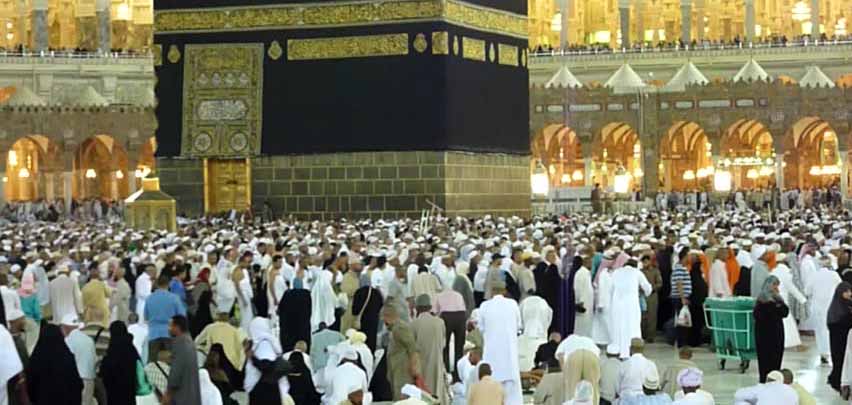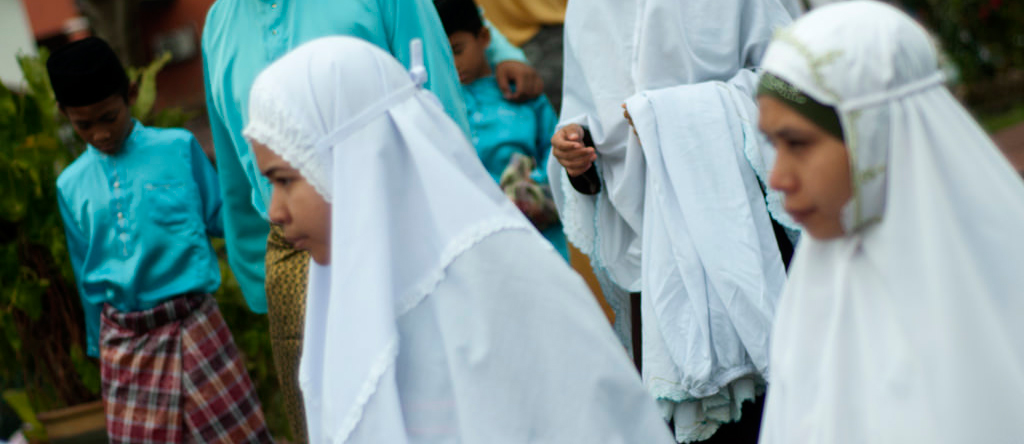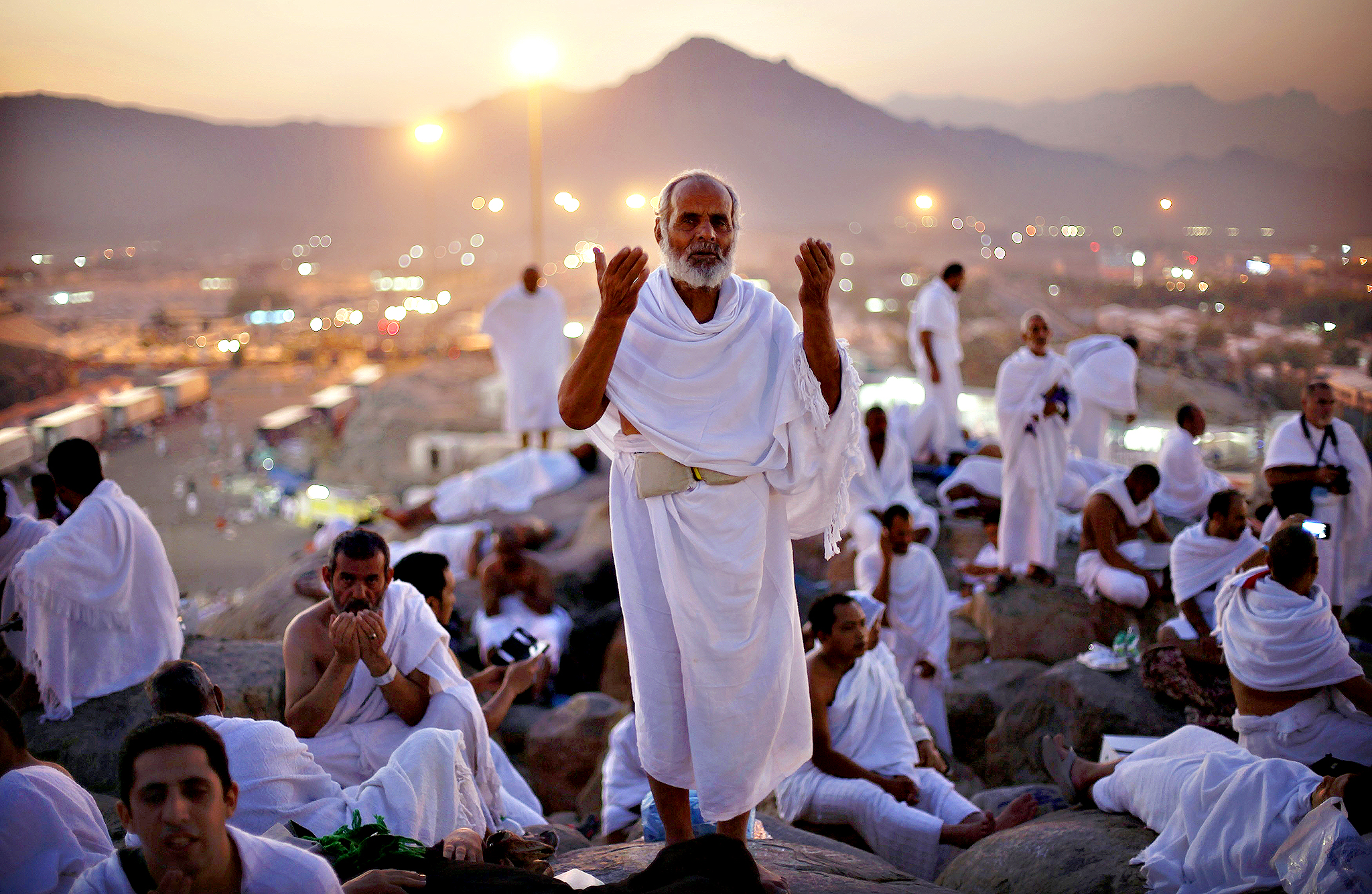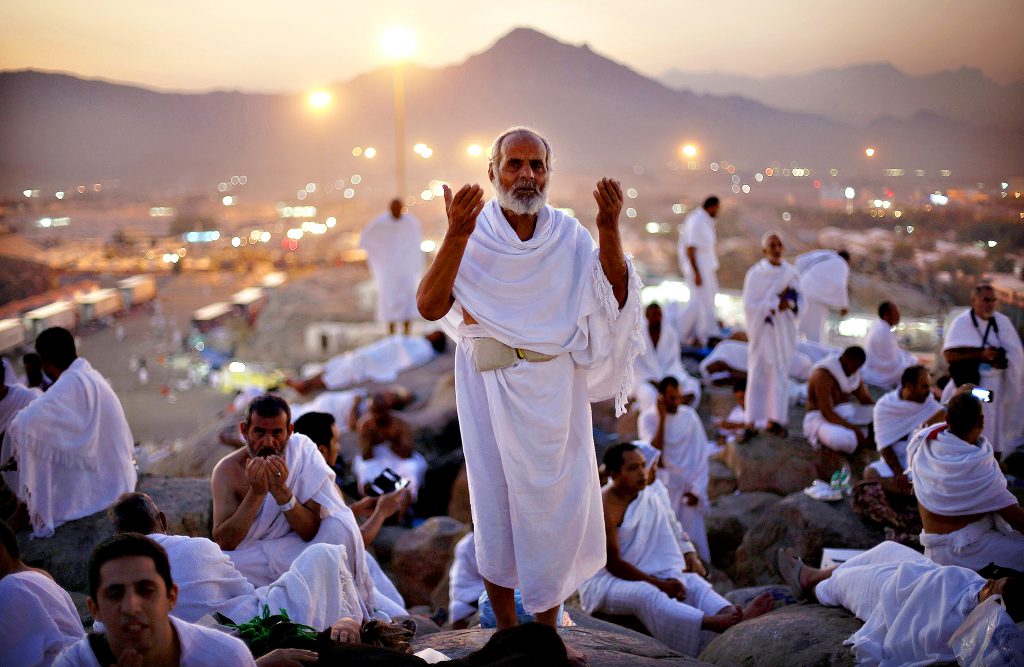Hajj is one of the best forms of worship and is one of the most sublime deeds because it is one of the pillars of Islam that Allah sent Muhammad (may the peace and blessings of Allah be upon him) with. A servant’s religion is incomplete without it.
Preface
Praise be to Allah, Lord of the Universe. May peace and blessings be upon Muhammad, the last of the Prophets and Messengers, and upon his family and esteemed Companions.
Hajj is one of the best forms of worship and is one of the most sublime deeds because it is one of the pillars of Islam that Allah sent Muhammad (may the peace and blessings of Allah be upon him) with. A servant’s religion is incomplete without it. A form of worship is only acceptable when the following is true:
One devotes it to Allah alone, with a desire for the Hereafter. It cannot be done with the intention of being seen among men or for worldly gain.
One follows the Prophet’s example, in words deeds. This cannot be accomplished except knowledge of the Sunnah.
Forms of Pilgrimage
There are three forms of Hajj: Tamattu’, Ifrad and Qiran
Tamattu’: A pilgrim wears Ihram for ‘Umrah only during the months of Hajj, which means when he reaches Makkah, he makes Tawaf and Sa’i for ‘Umrah. He then shaves or clips his hair. On the day of Tarwiyah, which is the eighth of Dhul-Hijjah, he puts on his Ihram for Hajj only and carries out all of its requirements.
Ifrad: A pilgrim wears Ihram for Hajj only. When he reaches Makkah, he performs Tawaf for his arrival and Sa’i for Hajj. He doesn’t shave or clip his hair as he doesn’t disengage from Ihram. Instead, he remains in Ihram till after he stones Jamarah al-‘Aqabah on the ‘Eid day. It is permissible for him to postpone his Sa’i for Hajj until after his Tawaf for Hajj.
Qiran: A pilgrim wears Ihram for both ‘Umrah and Hajj or he wears Ihram first for ‘Umrah, then makes intentions for Hajj before his Tawaf for Hajj. The obligations on one performing Ifrad are the same as those on one performing Qiran, except that the latter must slaughter whereas the former is not obligated to do so.
The best of the three forms is Tamattu’. It is the form that the Prophet (may the peace and blessings of Allah be upon him) encouraged his followers to perform. Even if a pilgrim makes intentions to perform Qiran or Ifrad he is allowed to change his intentions to Tamattu’; he can do this even after he has performed Tawaf and Sa’i.
When the Prophet (may the peace and blessings of Allah be upon him) performed Tawaf and Sa’i during the year of the Farewell Hajj with his Companions, he ordered all those who hadn’t brought sacrificial animals to change their intentions for Hajj to intentions for ‘Umrah, cut their hair, and disengage from Ihram till Hajj. He said, “If I hadn’t brought the sacrificial animal, I’d have done what I’ve ordered you to do.”
The ‘Umrah
If a pilgrim wishes to be ritually pure for ‘Umrah, he should shed his clothing and bathe as he would after sexual defilement, if convenient. He should perfume his head and beard with the best oil he can find. There is no harm in what remains of it after Ihram.
Bathing for Ihram is Sunnah for both men and women, including menstruating women and those experiencing postnatal bleeding. After bathing and preparing himself, a. pilgrim, other than those menstruating or experiencing postnatal bleeding, prays the obligatory prayer if it is time. Otherwise, he makes his intention by praying the two Sunnah which are made each time Wudhu’ is performed.
When he finishes his prayer he should say the Talbiyah: “Here I am for ‘Umrah, here I am, Oh Allah, here I am. Here I am. You have no partner. Here I am. Surely all praise, grace, and dominion are yours, and you have no partner.”
A man raises his voice when saying this and a woman says it so that only one besides her may hear her. One in Ihram should say the Talbiyah as often as possible, especially when times and places change. For example: when descending or ascending during travel or when day or night approach. He should also ask Allah for His pleasure, for Heaven and seek refuge in Allah’s mercy from Hellfire. One should say the Talbiyah during ‘Umrah, starting from the time he puts on his Ihram till he starts Tawaf. During Hajj he should say it starting from the time he puts on his Ihram till he starts to stone Jamarah al-‘Aqabah on the ‘Eid day.
When a pilgrim enters the Holy Mosque he puts forth his right foot first and says: “In the name of Allah, may peace and blessings are upon the Messenger of Allah. Oh Allah, forgive me my sins and open to me the doors of Your mercy. I seek refuge in Allah the Almighty and in His Eminent Face and in His Eternal Dominion from the accursed Satan.”
He approaches the Black Stone, touches it with his right hand and kisses it. If this isn’t possible, he should face the Black Stone and point to it. It is best not to push and shove, causing harm and being harmed by other people. When touching the Stone, a pilgrim should say the following: “In the name of Allah, Allah is the greatest. Oh, Allah, with faith in you, belief in Your book, loyalty to you, compliance to the way of your Prophet Muhammad (may the peace and blessings of Allah be upon him).”
A pilgrim must walk, keeping the Ka’bah on his left. When he reaches the Rukn al-Yamani he should touch, but not kiss it, and say: “Our Lord, grant us good in this life and good in the hereafter and save us from the punishment of the Hellfire. Oh, Allah, I beg of You for forgiveness and health in this life and in the Hereafter.” Each time he passes the Black Stone he should say: “Allah is the Greatest.” During the remainder of his Tawaf, he may say what he pleases of supplications, mentioning Allah, and recitation of Qur’an. This is because Tawaf, Sa’i, and Stoning the Jamarat have been devised for the purpose of mentioning Allah.
During this Tawaf it is necessary for a man to do two things:
Al-Idhtiba’ from the beginning of Tawaf until the end. Al-Idhtiba’ means placing the middle of one’s upper Ihram garment under his right arm and the ends of it over his left shoulder. When he is finished performing Tawaf, he may return his this upper garment to its original state because the time for Idhtiba’ is only during Tawaf.
Ar-Raml during the first three circuits. Ar-Raml means speeding up one’s pace with small steps. A pilgrim should walk at a normal pace during his last four circuits.
When he completes seven circuits of Tawaf, he approaches Maqam Ibrahim and recites:
“And take ye the station of Abraham as a place of Prayer.” [Al-Qur’an 2:125]
He prays two short units of prayer, as close as conveniently possible behind Maqam Ibrahim. During the first rak’ah he recites Surah al-Kafirun [Al-Qur’an 109] and during the second one Surah al-Ikhlas [Al-Qur’an 112]. When he completes the two raka’at he should return to the Black Stone and touch it, if convenient. He goes out to the Mesa’a and when he nears as-Safa he recites:
“Verily as-Safa and al-Marwah are among the shrines of Allah.” [Al-Qur’an 2:158]
He ascends as-Safa until he is able to see the Ka’bah. Facing the Ka’bah and raising his hands, he praises Allah and makes any supplications he chooses. The Prophet (may the peace and blessings of Allah be upon him) prayed thus: “There is no Deity but Allah Alone,” three times, supplicating in between. He descends as-Safa and heads for al-Marwah at a normal pace until he reaches the green marker. He should then run fast until the next green marker. He continues toward al-Marwah at a normal pace. When he reaches it, he ascends it, faces the Qiblah, raises his hands and repeats what he said on as-Safa. He descends al-Marwah heading towards as-Safa, taking care to walk where walking is designated, and run where running is designated. He continues this procedure until he completes seven laps.
Going from as-Safa to al-Marwah is a lap and returning is another lap. During his Sa’i he may recite what he wills of supplications, recitation of Qur’an, and mentioning Allah. In completion of Sa’i he shaves his head. A woman clips her hair the length of a fingertip. Shaving is preferable, except when Hajj is near and there isn’t sufficient time for hair to grow back. In this case, it’s best to clip so that hair will remain for shaving during Hajj. With that, ‘Umrah is completed, and a pilgrim is free to dress in other clothing, wear perfume and engage in marital relations, etc.
The Hajj
In the forenoon of the eighth day of Dhul-Hijjah, a pilgrim purifies himself once again by bathing as he did before ‘Umrah in the place in which he is staying, if convenient. He puts on his Ihram and says: “Here I am for Hajj. Here I am, oh Allah, here I am. Here I am. You have no partner. Here I am. Surely all praise, grace, and dominion are yours, and you have no partners.”
If he fears that something will prevent him from completing his Hajj he should make a condition when he makes his intentions, saying: “If I am prevented by any obstacle my place is wherever I am held up.” If he has no such fear, he doesn’t make this condition.
A pilgrim goes to Mina and there prays Dhuhr, ‘Asr, Maghrib, ‘Isha’ and Fajr, shortening his four unit prayers so as to make them two units each, without combining them. When the sun rises, he goes to ‘Arafah and there prays Dhuhr and ‘Asr combined at the time of Dhuhr, making each one two units. He remains in Namirah Mosque until sunset if possible. He remembers Allah and makes as many supplications as possible while facing the Qiblah.
The Prophet (may the peace and blessing of Allah be upon him) prayed thus: “There is no Deity but Allah alone. He has no partner. All dominion and praise are His and He is powerful over all things.”
If he grows weary it is permissible for him to engage in beneficial conversation with his companions or reading what he can find of beneficial books, especially those concerning Allah’s grace and abundant gifts. This will strengthen his hope in Allah.
He should then return to his supplications and be sure to spend the end of the day deep in supplication because the best of supplication is the supplication of the day of ‘Arafah. At sunset, he goes from ‘Arafah to Muzdalifah and there prays Maghrib, ‘Isha’, and Fajr. If he is tired or has little water, it is permissible for him to combine Maghrib and ‘Isha’. If he fears that he will not reach Muzdalifah until after midnight, he should pray before he reaches it for it is not permissible to delay the prayer until after midnight. He remains there, in Muzdalifah, making supplications and remembering Allah till just before sunrise.
If he is weak and cannot handle the crowd during ar-Ramy, it is permissible for him to go to Mina at the end of the night to stone the Jamarah before the arrival of the crowd. Near sunrise, a pilgrim goes from Muzdalifah to Mina. Upon reaching it he does the following:
He throws seven consecutive pebbles at Jamarah al-‘Aqabah which is the closest monument to Makkah, saying “Allah is the Greatest,” as he throws each pebble.
He slaughters the sacrificial animal, eats some of it, and gives some to the poor. Slaughter is obligatory on the Matamata and Qiran.
He shaves or clips his hair; shaving is preferable. A woman clips her hair the length of a fingertip.
These three should be done in the above order if convenient, but there is no restriction if one precedes another.
With that, one is allowed to come out of Ihram. He can wear other clothing and do everything that was lawful before Ihram except engaging in marital relations.
He goes to Makkah to perform Tawaf al-Ifadah and Sa’i, also for Hajj. It is Sunnah to put perfume on before going to Makkah. With the completion of this Tawaf and Sa’i, a pilgrim is allowed to do everything that was lawful before Ihram, including engaging in marital relations. After performing Tawaf and Sa’i, he returns to Mina to spend the nights of the eleventh and twelfth days there. He stones the three Jamarat in the afternoon of both the eleventh and twelfth days.
He starts with the first Jamarah, which is furthest from Makkah, then the middle one, and lastly Jamarah al-‘Aqabah. Each one should be stoned with seven consecutive pebbles accompanied by Takbir. He stops after the first and middle Jamarah to make supplications facing the Qiblah. It is not permissible to stone before noon on these two days. It is best to walk to the Jamarah, but riding is permissible. If he is in a hurry after stoning on the twelfth day, he leaves Mina before sunset. But if he wishes to prolong his stay, which is best, he spends the night of the thirteenth in Mina and stones that afternoon in the same manner as on the twelfth day.
When he is ready to return to his country, he makes Tawaf al-Wida’, which is seven circuits around the Ka’bah. Menstruating women and women experiencing postnatal discharge are not obligated to perform Tawaf al-Wida’.
Visiting the Prophet’s Mosque
A pilgrim goes to Madinah before or after Hajj with the intention of visiting the Prophet’s mosque and praying in it. Prayer there is better than a thousand prayers elsewhere except in the Holy Mosque in Makkah.
Upon reaching the mosque he prays two raka’at of salutation or performs any obligatory prayer that is due.
He goes to the grave of the Prophet (may the peace and blessings of Allah be upon him) and he stands before it. He greets him saying the “May the peace, mercy, and blessings of Allah be upon you, oh Prophet. May Allah grant you a good reward on behalf of your people.” He takes a step or two to his right to position himself before Abu Bakr and greets him saying: “May the peace, mercy, and blessing of Allah be upon you. oh Abu Bakr, Caliph of the Messenger of Allah. May Allah be pleased with you and grant you a good reward on behalf of Muhammad’s people.” Then he takes a step or two to his right to position himself before ‘Umar and greets him saying: “May the peace, mercy and blessings of Allah be upon you, oh ‘Umar, Prince of the believers. May Allah be pleased with you and grant you a good reward on behalf of Muhammad’s people.”
In a state of purity, he goes to pray in Quba Mosque.
He goes to al-Baqi to visit ‘Uthman’s grave (may Allah be pleased with him). He stands before it and greets him saying: “May the peace, mercy and blessing of Allah be upon you, oh Uthman Prince of the believers. May Allah be pleased with you and grant you a good reward on behalf of Muhammad’s people.” He greets any other Muslims in al-Baqi.
He goes to ‘Uhud and visits the grave of Hamza (may Allah be pleased with him) and the other martyrs there with him. He greets them and preys to Allah to grant them forgiveness, mercy, and pleasure.
Notification
The following is incumbent upon the Muhrim for Hajj or ‘Umrah:
That he be committed to Allah’s religious obligations upon him such as prayer in its time (in congregation for men).
That he avoids what Allah has prohibited such as obscenity, inequity, and disobedience, ” … if anyone undertakes Hajj therein, let there be no obscenity, nor wickedness, nor wrangling during Hajj.” [Al-Qur’an 2:197]
That he avoids harming the Muslims with words or actions within the Masha’ir or elsewhere.
That he avoids all of the restrictions of Ihram; (a) He shouldn’t cause the loss of any of his hair or nails. A prick by a thorn and the like is unobjectionable, even if there is bleeding, (b) He shouldn’t perfume himself, his clothing, his food or his drink after entering Ihram. He should also abstain from cleansing himself with scented soap. There is no harm in what remains of the effect of perfume used prior to Ihram, (c) He shouldn’t touch, kiss, etc. his spouse out of passion and, even worse, shouldn’t have sexual intercourse, (d) He shouldn’t be wed or propose to a woman for himself or others, and (e) He shouldn’t wear gloves, although there is no harm in wrapping the hands in cloth. This ruling goes for both men and women.
The following pertains specifically to men:
He cannot cover his head with something that touches it, although there is no harm in the use of an umbrella, the roof of a car or tent for shade. There is also no harm in carrying his baggage atop his head.
He cannot wear a shirt, turban, hooded cloak trousers, or shoes. Only if he is unable to obtain an izar or sandals can he wear trousers or shoes.
He cannot wear anything with the same qualities of the above mentioned such as an abaya, quba, hat, undershirt, etc. It is permissible for him to wear sandals, rings, glasses, a hearing aid. a watch, worn on his wrist or hung from his neck, or a speech aid. It is permissible for him to cleanse himself with unscented cleansers and to wash and scratch his head and body, even if some of his hair falls unintentionally. In such a case there is no obligation on him because of it.
A woman cannot wear a Niqab or Burqa’. The Sunnah is for her to uncover her face except if men not related to her might see her, in which case it is obligatory for her to cover her face during Ihram and otherwise.
Allah is the Giver of success. May His blessings be upon our Prophet Muhammad and all of his family and Companions.
By the needy before Allah, Muhammad Salih al-‘Uthaymin
Article by SunnahOnline.com




